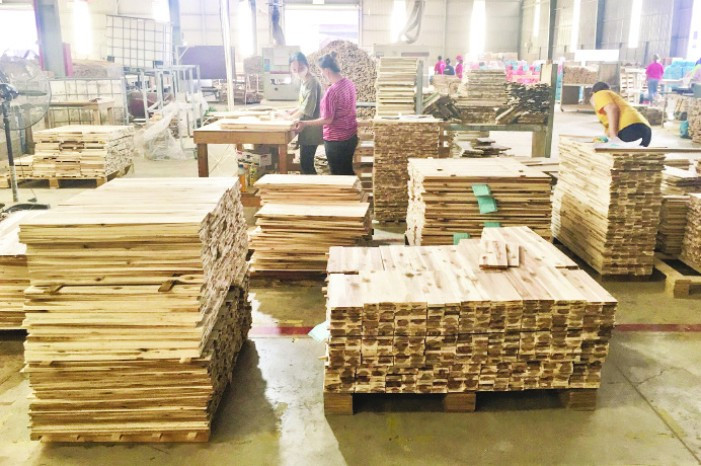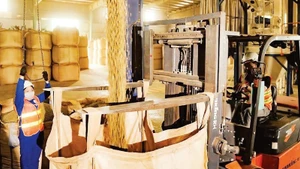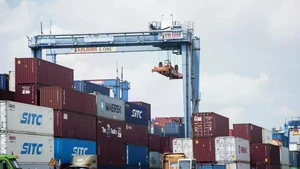Currently, the timber sector has seen a sharp fall in orders, and even when there are orders, most of them are small ones. The sector’s growth target of 7% to reach 18 billion USD for all of 2023 is facing a great deal of challenge.
In 2022 Vietnam earned 15.67 billion USD from exporting timber and timber products, up 10.9% from the prior year and meeting the set target. The sector enjoyed decent growth in the first half of 2022, with monthly revenue averaging 1.4 billion USD. But growth began to slow in the second half due to the Russia-Ukraine conflict and economic downturn in many of Vietnam’s key markets, such as the US, the EU and the UK.
According to Chairman of the Vietnam Timber & Forest Products Association (Viforest) Do Xuan Lap, the first quarter of 2023 is over but the macroeconomic situation has remained largely unchanged from the previous quarter. Inflation in the US and the EU remains high, which has caused consumers to restrict their spending on non-essential goods, including timber products.
The property market in these market is subdued while Vietnam’s timber export is highly dependent on this sector. The prolonged Russia-Ukraine conflict has no signs of ending soon. Such factors are exerting negative impacts on the prices of goods and lowering the general consumption demand.
To Xuan Phuc, an analyst at Forest Trends, said that timber exports will continue to face a market slump. In addition, timber products made of birch wood sourced from Russia will be subject to taxes or trade barriers as a result of sanctions imposed by Western countries.
The stability of three East Asian markets - China, Japan and the Republic of Korea, is much higher than the US and EU markets. But timber exports to these three markets are fairly restricted, mainly woodchips, wood pellets and plywood.
The year 2022 witnessed very strong growth in the export of these products, especially woodchips exported to China and wood pellets exported to Japan and the Republic of Korea. However, in recent months, the demand for these products has shown signs of cooling down.
Viforest has forecast that Vietnam’s timber sector will continue to face difficulties in 2023. To weather the storm, timber businesses need to focus on enhancing their competitiveness with synchronous solutions. They include promoting the use of locally grown forest wood, reducing the use of imported wood, applying technologies to improve labour productivity, and adopting digital transformation to reduce production costs.
In addition, enterprises need to collaborate with localities to build centralised processing industrial parks, expand trade promotion activities and host large international fairs.
For their part, state management agencies should foster the growth of the forestry industry, develop sustainable afforestation along with advanced processing. At the same time, it is necessary to intensify trade promotion and research the markets to proactively settle trade disputes and meet the actual needs of the world consumer market.
















